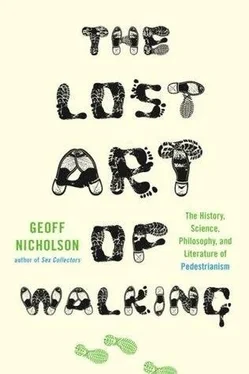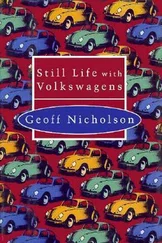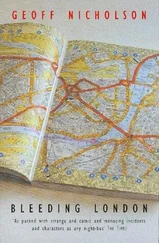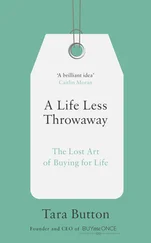The shops along the street weren’t really places an eleven-year-old could browse. A Woolworth’s was the most kid-friendly, and I remember there being more pork butchers than any community would rightly need, one of them called Funks, a name that seems much odder to me now than it did at the time. There was also a shop that made fresh crumpets on the premises, and there was some pleasure to be had in staring in through the window watching the crumpets come to life, rise and bubble before me on a hot plate, but even with the other attractions — a place to buy comics, a newsagent that sold toys — this didn’t really add up to an afternoon’s entertainment.
Nevertheless, I entertained myself in a way that then seemed perfectly natural, and which now seems a bit weird. There were two automobile showrooms on the street, one at either end of the stretch of shops. The one up by the park specialized in the NSU Prinz, a small, humpy, rear-engined German car, not quite serious-looking, odd rather than exotic, but a fascinating curiosity to me. The ones I liked best were finished in a gleaming lacquered red that made them look like giant toys.
The dealership at the other end sold American cars: Nash Ramblers, mostly station wagons. At the time it did seem a little bit odd that anyone would be trying to sell Nash Ramblers in a working-class enclave of Sheffield — today it seems utterly inconceivable. Who would ever have bought one? I liked them a lot and I always looked out for them, but I don’t remember ever seeing one on the road. How would you get spare parts? Which local Sheffield mechanic would be prepared to work on a car like that?
In fact, there are times when I wonder whether it was some sort of deep-cover CIA operation, that the Nash Ramblers were only there because of the NSU presence at the other end of the street. If those Germans thought they could sell weird cars in Sheffield, then they’d have to compete with American know-how.
That’s a recent thought. Back then it seemed that these competing enterprises had been put there for my delight, and the two showrooms became the two poles of my Saturday afternoon walks. I would stand in front of one of them, for quite a long time, rapt, quietly excited, looking at the bright, shiny, unfamiliar cars, then I’d walk the length of the street to the other showroom, do the same thing there, then walk back to the other, then back again, and so on until the afternoon was used up.
♦
I went back to Hillsborough on a rainy afternoon in September. In the intervening years Hillsborough had become infamous around certain parts of the world. Hillsborough is not only the name of a district, it’s also the name of a soccer ground where the Sheffield Wednesday Football Club is based, and where the ‘Hillsborough disaster’, or sometimes ‘Hillsborough tragedy’, took place. On April 15, 1989, at a sold-out cup match between Nottingham Forest and Liverpool, thousands of fans packed into a limited standing area that was simply too small to accommodate them. As people packed in from the rear, those at the front were crushed. In all, ninety-six people were killed, and some of them died standing up, unable to fall to the ground because of the density of the crowd — hundreds more were injured.
The Liverpool fans are famous for singing ‘You’ll Never Walk Alone’, a song of Christian, or at least spiritual, consolation when sung in Carousel that becomes a war chant in the mouths of football supporters.
I began to walk the length of the Hillsborough shopping street. It was cold, it was raining, but my curiosity drove me on. It would have been amazing to find there were two car showrooms still in business, and I was not amazed. The building that had housed the NSU dealership was now Meade House, belonging to something called the Sheffield City Council’s Children and Young Peoples’ (that apostrophe is all theirs) Directorate Social Care Services. The showroom windows through which I’d once looked at cars were gone, and blank, insubstantial, cream-colored walls had been built in their place. The effect was bleak and characterless, and I could only guess at what terrible good works were planned and executed there.
Naturally the Rambler showroom wasn’t there either. Even the building that had contained it had gone and there was now a bus station in its place. And so again I walked between these two poles: between the bus station and the outpost of the Young Peoples’ Directorate. There was a lot about the place and its atmosphere that had stayed the same. The pokey, failing little shops were still pokey and failing, even if they offered goods and services that hadn’t been available when I’d been a boy, such as the crystal-selling shop, now closed, and the Hollywood Nail Bar, ‘American Style’, it claimed. But the newsagents and the betting shops and the place selling gas fires didn’t seem to have changed at all.
The pubs weren’t much different either. When I was growing up, the name ‘Shakespeare’ had been spoken daily by some family members since The Shakespeare was the name of one of the local pubs they drank in. It had now changed its name to The Shakey, but it looked as unwelcoming to me now as it had back then.
And there was still an excess of pork butchers, including Funks. In business since 1890, it said on the canopy outside, and clearly not about to give up now. There was a line of people queuing up to buy hot pork sandwiches with applesauce, stuffing, and crackling. I joined the line, and as I waited I checked my GPS to see how far apart the twin poles of my childhood actually were. I knew that my eleven-year-old’s horizons were limited, but I now discovered that the distance between the two showrooms had been scarcely more than a quarter of a mile.
I got served, but eating a hot pork sandwich in the street in the rain, with stuffing and applesauce running down your chin and wrists, seemed just a little too difficult. I headed for the park, where I hoped to find a bit of shelter. I was prepared for Hillsborough Park to be smaller than I remembered it, but it seemed as big as ever, with an athletics track and a boating lake and a library in one corner.
But there, next to the library, was a wall and a gateway that looked completely unfamiliar yet enticing. I stepped through the gateway and found myself in another world, in a classic walled garden, something that could have been from an English country house, decked out with bowers and trellises, raised beds and benches. And I found a place with a bit of shelter overhead, sat down, and ate my pork sandwich, and I was amazed.
I don’t know that my eleven-year-old self would have appreciated a classic English walled garden, but my contemporary self found it a wonder, an oasis of calm and elegance, with (let’s face it) thoroughly non-working-class values. And there was nobody in there but me. Maybe that was because of the rain, but I suspected not. The people who enjoyed The Shakey and the pork butchers and the betting shops probably weren’t the people who appreciated traditional English walled gardens.
I finished my sandwich, left the garden, and walked into the main area of the park through a metal arch. I looked back and saw some words, a motto shaped into wrought iron. The words said ‘You’ll never walk alone’, as sung by Liverpool fans: this gateway was in memory of the dead football fans.
I was only briefly a football supporter. I pretty much gave it up when I discovered ‘literature’. In any case I think I would rather walk alone than walk in the company of any number of football fans. In Hillsborough, in Sheffield, in my childhood, it seemed I had never done anything else but walk alone.
♦
Even so, the next morning my old friend Steve and I set off to explore the Longley Estate. I admit I was wary of going back. There was a theory, not mine, that people like my parents, like me, like Steve, were no longer to be found in public housing. Yes, the council estates had once been full of decent, honest, hardworking people, but they’d all moved on and moved up, the way my parents had, and those left behind were the scroungers, the criminals, the crackheads and crack whores.
Читать дальше












